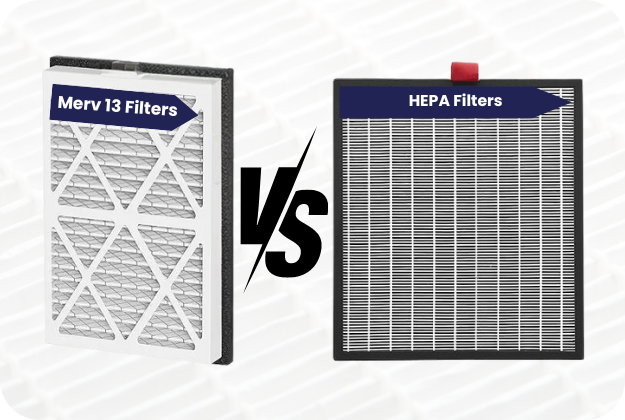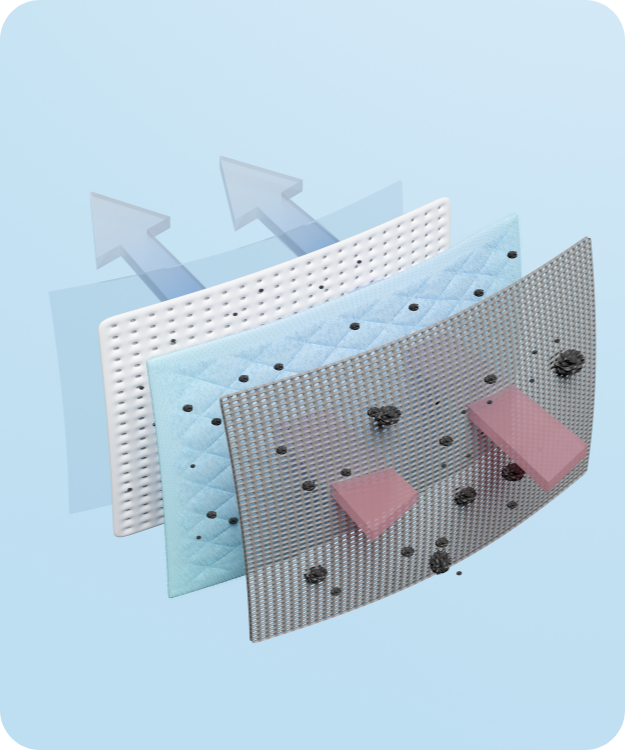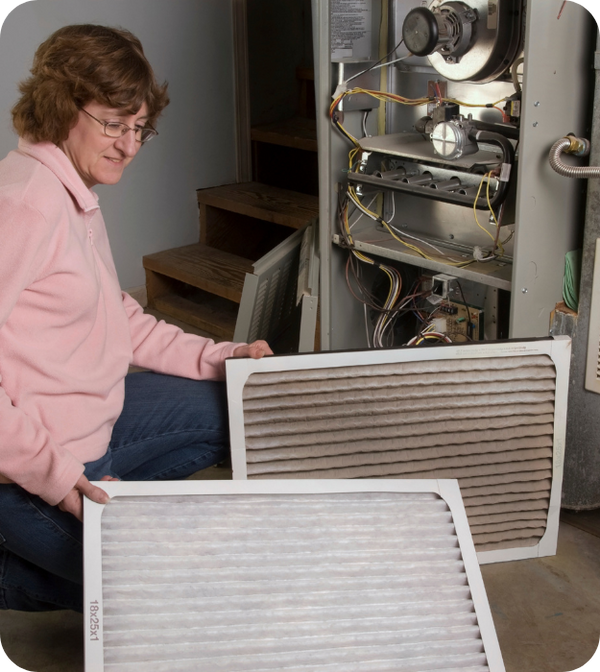Premium American-Made MERV 13 Air Filters
Choose Your Filter Size

MERV 13 Air Filters vs. HEPA Filters
As you know both MERV 13 air filters and HEPA filters are designed to improve indoor air quality by capturing airborne particles present in the air.. MERV 13 air filters are good for capturing all airborne pollutants, including particles, such as dust, pollen, mold spores, and some bacteria and viruses, these pollutants can be as 03 microns. HEPA filters, on the other hand, provide better filtration. HEPA filters are often used in environments requiring the highest levels of air purity, such as laboratories and hospitals, where they trap 99.97% of particles, including ultrafine particles like smoke and certain bacteria.
For most homes and businesses, MERV 13 air filters strike the perfect balance between filtration productivity and airflow, allowing HVAC systems to operate efficiently while still offering outstanding air quality. MERV 13 air filters offer superior air filtration without putting excessive strain on your HVAC system, however, HEPA filters may limit airflow because of their higher efficiency.

Which Pollutants Are Captured By Merv 13 Air Filters?
MERV 13 air filters are highly effective at capturing a wide array of airborne contaminants, helping to maintain a clean and healthy indoor environment. These filters trap:
- Dust And Debris Mites
- Pollen
- Mold Spores
- Pet Dander
- Smoke And Smog
- Bacteria And Around Viruses
- Germs
- Other Mobile Particles
Due to their good filtration, MERV 13 air filters are often used in places that require great air quality. These filters are used in places such as homes, offices, theaters, hospitals, clinics, industry plants, and physical fitness centers. By reducing harmful particles, they promote cleaner air and a more comfortable environment for everyone.
Why Choose MERV 13 Air Filters?

Superior Filtration
MERV 13 air filters provide you with the best air filtration as they can effectively capture airborne particles up to 99.97 percent which can be as small as 0.3 microns. The airborne particles that are captured by MERV 13 air filters are pollutants such as dust mites, pollen, smoke, pet dander, and even some bacteria and viruses.

Durable & Cost Effective
MERV 13 air filters do not require frequent changes and have a longer lifespan in comparison to other MERV air filters with lower ratings. So, if you are looking for an air filter that offers you excellent air quality while being highly durable and lasts for a long time, then the MERV 13 air filter is the perfect option for you.

Improved Health
MERV 13 air filters help remove many harmful airborne particles from your indoor environment. This amazing air filter is especially beneficial for people who constantly suffer from health problems like asthma, allergies, and other respiratory issues. MERV 13 air filters will provide you with clean, fresh, and healthy air to breathe.

Environment Friendly
MERV 13 air filters have a longer lifespan which makes them last for a long period. This air filter does not require frequent replacement like the other air filters with lesser MERV ratings. So, if you want to have good air quality in your home or office without causing any harm to the environment then MERV 13 air filter is the best choice for you.

Signs That Your Merv 13 Air Filter Needs To Be Replaced
It's important to regularly check and replace your MERV 13 air filter in order to maintain the best possible indoor air quality. Here are some of the points through which you will know that there is a need to change your air filter.
- Increased Energy Bills: In case your HVAC system is working harder, this means that your air filter is clogged. This will result in higher usage of energy, and this will eventually increase energy consumption. So to reduce your energy bills, is it important to change your MERV 13 air filter.
- Reduced Airflow: If your air filter is blocked, then it can be one of the major reasons due to which your HVAC system is not able to properly circulate the air. So to bring back the HVAC system's efficiency and airflow, it is important to change the air filter.
- Worsen Allergy Symptoms: If you find that people living in your house are facing health problems such as sneezing, coughing, asthma, or any other respiratory issues, then this can be due to a clogged air filter. So it's time to check your air filter and get it replaced.
- Unpleasant Odors: If you have not changed your air filter for a long period of time then you can find that mold and other bacteria have grown there which produced an unpleasant odor. So regularly checking your air filter and replacing it is important to keep the bad smell out of your living area.
Custom Filters Direct A Trusted Source For High-Quality Filters

Proof Of Happy And Satisfied Customers
There’s no better proof of the quality of our custom air filters and service than these testimonials from our satisfied customers:

I use this website every time I need to order filters for my house. Service is great, & the product is great. We had a very hard time finding our odd sized filter in stores or online.



I own and operate a residential rental property business. Changing air filters has been a huge challenge for us in the past. Custom Filters Direct made the entire process for us a breeze



I never knew the importance of an air filter subscription until I actually had my filters delivered on a quarterly basis. Every time I forgot about the filters they show up in the mail!



We needed a custom size for our new rooftop units, contacted Custom Filters Direct and they got me exactly what I needed, delivered to my property managers office a few days later. Highly recommended



They arrived quickly and I noticed the difference in air quality the night I put them in! Perfect filters – especially for anyone with allergies!


-


(46) Verified Reviews
-


(46) Verified Reviews
-


(46) Verified Reviews
-


(46) Verified Reviews
-


(46) Verified Reviews
Frequently Asked Questions
Yes, the denser material of MERV 13 air filters can sometimes restrict the airflow. However, MERV 13 air filters are designed to function with most of the HVAC systems. If you are planning to upgrade your air filter it is always advised that you first check the specifications of your system or take help from an expert.
MERV 13 air filters are capable of capturing airborne particles that range in size from many viruses. They can still catch some virus particles, even if they are less effective than HEPA filters, giving both homes and businesses a certain level of protection.
Due to its versatility, MERV 13 air filters can be used in a variety of settings, including hospitals, schools, commercial buildings, and residential homes, where maintaining air quality is the primary concern. In areas with high dust, allergy, or pollution levels, they are extremely beneficial.
The different airborne particles captured by MERV 13 air filters are Various airborne dirt, pollen, dust, mold spores, pet dander, bacteria, smoke, and even certain virus particles. These filters are perfect for improving indoor air quality in homes, offices, and other spaces.
Older HVAC systems may not be able to handle the airflow restriction of the MERV 13 air filter, even though these filters are usually suitable for residential systems. It is important to get in touch with an HVAC professional to see whether your system is able to handle the MERV 13 air filter.

 Email Us
Email Us Shop Now
Shop Now




